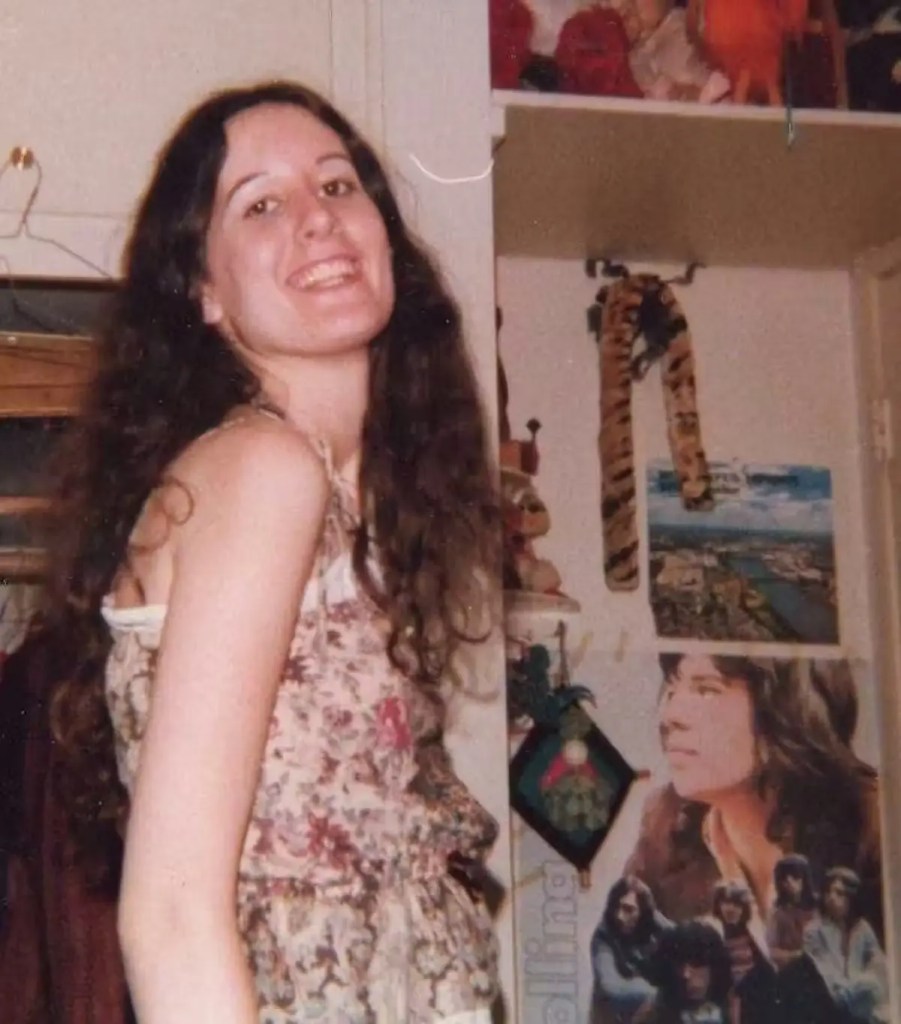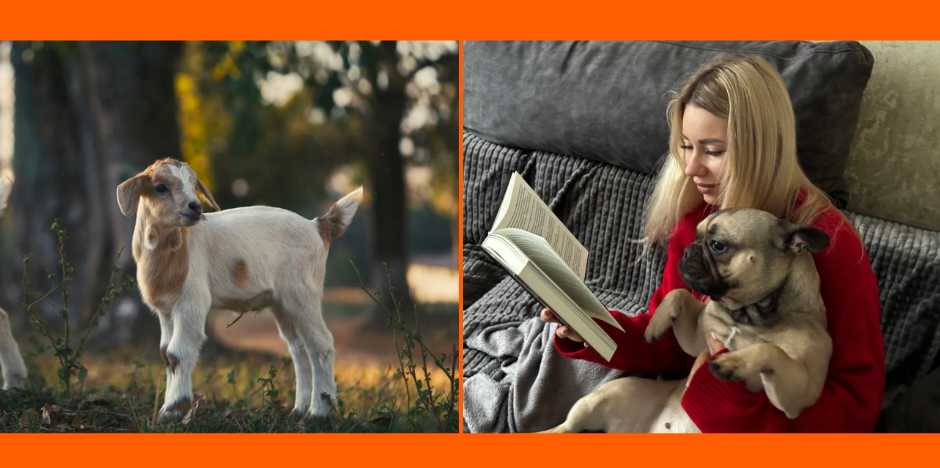Warning: Some language in this piece is NSFW. Because this is an article about being a woman on Tinder. And, well, ugh. You know.
If you’re a woman and a little person on Tinder, there are plenty of people happy to make your acquaintance — on very … particular terms.
Laura Cooper, a health care worker and aspiring stand-up comedian, has been on Tinder since last spring. She’s 4 feet, 2 inches tall, with a desert-dry sense of humor and a hilariously depressing Instagram feed — aptly named “Laura vs. Tinder” — on which she documents her “Groundhog Day”-like adventures on the dating app.
“They don’t say the terrible things right off the bat,” she says. “It usually takes them a few back-and-forths, and then they’ll tell me they have a fantasy about me.”
Cooper signed up for Tinder partly out of boredom, partly as a sort of “social experiment.”
“Growing up, I was in kind of the nerdy group, and none of us dated, and in college, I didn’t really,” she explains.
Though she didn’t foreclose the possibility of meeting someone, she held her expectations in check, having heard dozens of horror stories from friends.
Of course, she doesn’t speak for all little people, and hers is just one experience. But for better or worse, she’s definitely learned a thing or two. All of it interesting — not all of it super great. And yet, some of it mildly (OK, extremely mildly) redeeming.
1. You are a “bucket list” item.
The way Cooper has decided to use Tinder is equal parts admirable and a nightmare worse than the one where robots are eating your dog: She always swipes right to match. She estimates she’s matched with over 3,000 people in her hometown of Cincinnati and that roughly 170% of them send messages that are the dating app equivalent of a low, rumbling fart.
“Everyone has fantasized about banging a little person,” Cooper says. If it’s an exaggeration, it’s not much of one, as evidenced by a quick glance at the kinds of messages she receives.
“I was going to make a joke about how my penis would be a significant percentage of your height,” wrote one potential suitor, stopping himself before he said the very thing he obviously implied — and also, let’s face it, kind of did say — apparently in a heroic act of herculean restraint.
Not every guy who contacts her is such a master of subtlety. “I bet my dicks [sic] half the size of your body,” said someone else, very originally.
“Is my cock longer than your arms?” penned another Shakespeare.
Some men are even more … direct, like the dude who made a bizarre reference to a specific snow removal tool when he told her he wanted, “to get a scoop shovel and tear into [her] sweet midget ass.” Others try really cool awesome unique puns, like the wordsmith who said he was “trying to come over for a LITTLE … or a SHORT period of time.” Or the gentleman who posed the brilliant rhetorical question that speaks to the heart-core of every little woman’s lived experience: “Riding dick is better, no?”
Cooper finds the barrage of objectifying messages partly funny, partly pathetic. For a group of strange men ostensibly trying to win her interest, she explains, these dudes could not be doing it more wrongly.
“I would caution people from treating other people like inanimate objects. I’m kind of me first and my disability second,” Cooper says, “so it’s weird when my disability is all that people see. I think people need to remember that it’s a human on the other side.”
2. There is virtually nothing you can say to turn off really persistent fetishists.
For guys who have made it their mission to find a little person, any little person, to have sex with, the specifics of what that might entail don’t seem to matter, no matter how bizarre — much to Cooper’s endless amusement.
“One guy asked me what I liked to do for fun, and I said, ‘Make nail clipping mosaics and earwax candles.’ And he didn’t even blink at that. He was just like, ‘Oh, that’s cool,’” she recalls.
Like mosquitoes, indictments of Trump administration officials, and seasons of “The Big Bang Theory,” these horny dudes just keep coming.
3. Except for maybe one thing.
While people with disproportionate dwarfism are a large, diverse group who experience the full human range of health outcomes, certain medical problems have a nasty habit of cropping up at the most inopportune times. Many of Cooper’s friends have endured surgeries their entire lives. Cooper herself has been lucky — until one day she wasn’t.
“My colon exploded,” she says.
Cooper needed an emergency procedure that landed her in the hospital for a month. For the most part, she passed the time resting, recuperating, and enjoying the free incapacitating drugs. Until she got bored.
“I logged onto Tinder once when I was in the hospital,” she says. “And he asked me how I was doing. I think my response was, ‘I’m hooked up to eight bags of IV fluids and I have a huge gash on my stomach, how are you?’”
This, apparently, was a bridge too far for her anonymous admirer’s delicate male sensibilities.
“He unmatched.”
4. Men aren’t immune from the weirdness.
Cooper started her feed with encouragement (and occasional contributions) from her friends who are little people, many of whom have similar dating app stories. And it’s not just the women who get bizarre messages.
“Some of the guys get creepy stuff too,” she says. While milder than the requests for driveway-clearing-after-a-Nor’easter-style sex and literal dick-measuring messages, “I’ve always wanted to hook up with a short man” turns out to be the far more polite but no less objectifying female version of same.
And as much as it’s purported to be the Obvious Ultimate Fantasy of Every Man™ to be approached by horny, anonymous women on a daily basis, shockingly, it can be a bit of a mood killer when said women view you as “a dwarf-shaped sex toy.”
“The guys are like, ‘Mmm, no.’” Cooper says.
5. People expect you to be grateful for the attention, and you can get suspended — or even banned — for disabusing them of that notion.
When confronted with a stream of holy-crap-did-he-just-say-that-gah-of-course-he-just-did, Cooper is faced with two choices: She can either slink away meekly into the digital ether and ignore him, or she can use her wicked sense of humor to engage in hand-to-hand combat.
Unsurprisingly, she often chooses the latter.
Her retorts have a tendency to surprise and confound her hopeful paramours, many of whom, she suspects, run crying to Tinder’s invisible referees like a toddler who had his binky swiped. Rejection, it seems, wasn’t part of their plan.
“I’ve been under review like six times,” she says. “I log in, and I see that [red] screen, and I’m like, ‘Aw, come on!’”
The suspensions can last anywhere from a few days to several weeks. Though she has no way of knowing for sure, Cooper suspects her jousting would be tolerated in a woman of average height, one who they haven’t pegged as “desperate.”
“It’s usually when I turn them down that they unmatch and report me,” she says sarcastically. “Because, you know, I’m not allowed to say ‘no.’”
Meanwhile, the dudes who report her are allowed to continue bumping around Tinder despite the crude, objectifying, Axe-body-spray-tinged nonsense they vomit.
6. Cooper’s experience is both the same shit every woman has to put up with on dating apps — and also completely 100% not.
Reading just a few of Cooper’s messages pretty well illustrates the particular joy of navigating Tinder as an out and proud little person. Still, a quick glance at the Instagram account Tinder Nightmares suggests that women of all heights, sizes, religions, colors, and United MileagePlus Premiere statuses are subjected to horrifically gross man-bile on a minute-ly basis. Do people in Cooper’s position really have it worse?
For perspective, I managed to track down former Tinder user and non-little person, Michelle D (name abridged to protect her privacy,) a health care worker based abroad. Michelle tells me she “almost never [got] very forward/over-sexualized messages” when she was on the app and regards her Tinder experience as generally “excellent.” I showed her Cooper’s Instagram feed. Her reaction was about as measured as you might expect:
“Fuuuck.”
The messages were a shock. And Michelle says she rarely, if ever, got anything like them. Still, she explains that some of the behavior Cooper experiences in the app simply migrated to her real-life meetings with Tinder matches — often in uncomfortable, occasionally scary, ways.
“I feel that men can sometimes be less respectful because it’s a Tinder hookup,” Michelle explains. “Like they’re more likely to push more outlandish or even risky sex stuff.”
In that sense, Cooper’s experience is less an aberration than one extreme end of a spectrum. An objectifying, dark-carnival, creepy spectrum.
7. Tinder’s not all nightmarish dystopian hellscape — you can actually meet some nice people.
Miraculously, Cooper managed to weed through the pile of sentient phalluses with faces attached to snag a few dates with some actual human men, who, as it turns out, were kinda cool.
“They just had interests and were easy to talk to. And they enjoyed my Tinder posts [on Instagram] too. They both followed me on it.” She’s also made a few Facebook and Instagram friends through the app. They continue to trade jokes and conversation, none of it about relative body part size or sex acts involving snow shovels.
Cooper especially likes to use Tinder when she travels. For the most part, she says, no matter where she goes, it’s the same shit, different city. With one exception.
“Seattle was not bad,” she says. “‘Cause I think there are smarter people there. People that actually wanted to hang out or [have] real conversations with proper grammar and good spelling. It was refreshing. Like they were very clearly interested in me as a human.”
8. But you always wonder what people’s true intentions are.
A few positive experiences haven’t been quite enough to restore her faith in Tinderkind. These days, Cooper can’t help but approach new matches on the app with a certain wariness.
“I think I am going to always wonder if someone secretly has a fetish and just doesn’t say it,” she admits. “So even if someone is decent, I tend to think, ‘You’re not really decent.’”
The hospital stay was nearly a turning point for Cooper. Hopped up on pain medication and IV fluids, she was “too confused” to swipe in any direction. Yet, as she lay in bed by herself, counting down the hours, she found herself missing Tinder. The game. The trolling. The human connection — even the kind that involves pontificating on the similarities between “ur asshole and a 9-volt battery.”
As it turned out, the feeling was mutual.
When she finally got home, she turned on her phone, only to find hundreds of messages waiting for her.
“It was just funny. It was like, ‘Oh. They missed me.’”























